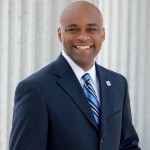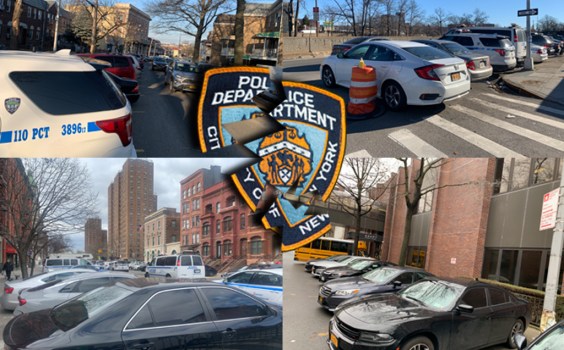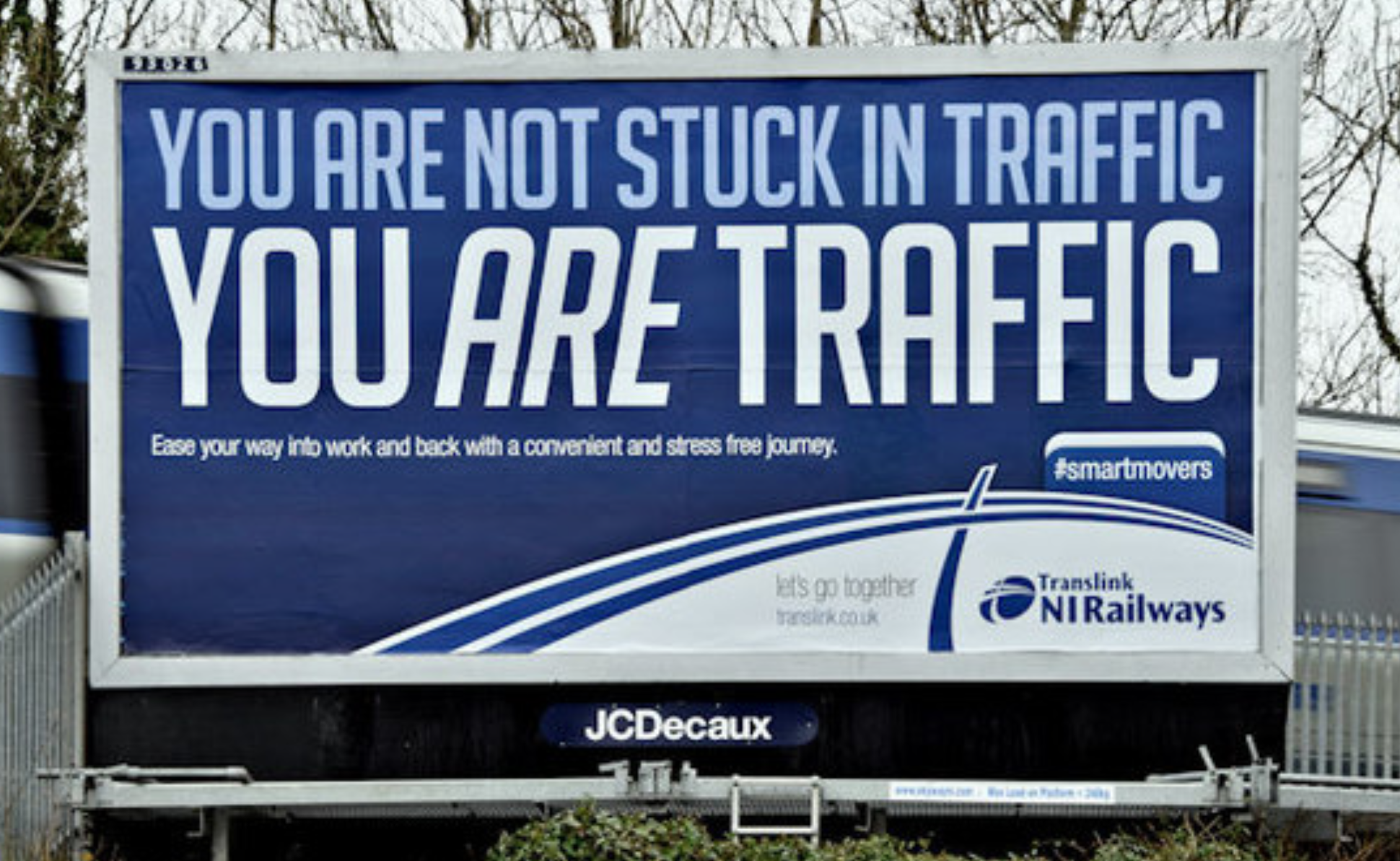WaPo Transpo Forum: America’s Mayors Aren’t Waiting for Washington
2:26 PM EDT on October 24, 2014
Atlanta’s BeltLine of bike and pedestrian trails is raising property values in every place it touches. Denver’s new rail line will create a much-needed link between Union Station downtown and the airport, 23 miles away. Miami is building 500 miles of bike paths and trails. Los Angeles is breaking new ground with everything from rail expansion to traffic light synchronization. And Salt Lake City’s mayor bikes to work and, by increasing investment in bike infrastructure, is encouraging a lot of others to join him.
At this week’s Washington Post forum on transportation, five mayors from this diverse set of cities spoke of the challenges and opportunities they face as they try to improve transportation options without much help or guidance from the federal government.
Speaking of the feds:
Mayor Kasim Reed of Atlanta is tired of Congress not doing its job. “Cities don’t get to kick the can,” he said. And even if the feds aren’t ready to make big investments, private and foreign investors are reportedly itching to get a crack at U.S. infrastructure, but there’s been no good process for doing so. Reed wants the federal government to play a convening role, bringing mayors together with private investors they can pitch projects to.
And either way, he said, if the federal government is providing less funding to cities for transportation, “we think they need to have a little less say” -- except when it comes to safety. But Denver Mayor Michael Hancock says there’s an upside to the gridlock in Washington: “Cities are being more creative.” And Salt Lake City Mayor Ralph Becker says the Obama administration has been a great partner -- pointing especially to the TIGER program and the HUD/DOT/EPA Partnership for Sustainable Communities.
New projects:
Los Angeles Mayor Eric Garcetti is excited about intelligent transportation technology, like the traffic signal synchronization his predecessor, Antonio Villaraigosa, pioneered. And LA’s Expo line -- which he dubbed the Beach-to-Bars line -- opens soon, turning a two-hour slog through traffic into a 45-minute pleasure cruise. He says it’ll open up access to the Philharmonic and sports venues that, these days, are often avoided because the trip is too hellish.
But Garcetti is already on to the next thing. To him, that thing is autonomous cars. He thinks LA will be a natural home for those. In fact, he openly acknowledges that his push to build BRT lanes is all in the interest of turning them into autonomous vehicle lanes a few years down the road. That's right -- despite the visionary strategic plan LA just released, Garcetti wants to turn road space over from efficient modes to less efficient ones.
And he does think driverless cars are just a few years away -- he estimates that one in every 100 cars will be self-driving in 10 years, and five years after that they’ll be “absolutely mainstream.”
Denver’s Mayor Hancock is especially excited about the “Corridor of Opportunity” between the airport and Union Station because he lives out by the airport -- one block inside the city limits, just enough to run for mayor, he admits. He currently drives to work, but he says he’s excited for the chance to take the train instead. “What we’ve decided to do is Denver is create a more multimodal approach to our transportation challenges,” he said. “Not only do you need to plan transit, but you need to plan for bicycles, you need to plan for pedestrian-friendly communities.” (And more lanes on the highway.)
Carlos Gimenez, mayor of Miami-Dade County, says they don’t really have a rail transit “system” at all, just one line (with a little detour to the airport). They’re still waiting for a rail link to the beach. The county's new 10-year transportation plan has been lambasted by advocates as "complete fluff with no substance, future transit vision, or measurable goals."
Once these projects get going, they have a way of multiplying. Salt Lake City has built 140 miles of urban rail in 15 years, and Mayor Becker says that even the skeptics wanted a light rail line of their own the minute the first line opened. What they still need to do, Becker said, is flesh out the bus system -- “we invested in rail to the detriment of a really strong bus system,” he said -- and fill in the gaps in the bike trail network.
On financing:
When asked about the single thing he’s done as mayor that’s made a difference in reducing traffic congestion in Atlanta, Reed said, “We haven’t done it yet, because we failed.” He said losing the T-SPLOST transportation referendum was “the biggest failure of my political career.” He took heart, though, knowing that it took Denver multiple tries, too, before they managed to pass a 0.4 percent sales tax for FasTracks. Hancock said it wasn’t until 41 regional mayors came together to support it that it finally passed.
Reed is determined to take another crack at it. “I’m not going to let the folks who don’t want it prevent us from having it,” he said. “The city of Atlanta voted overwhelmingly for it” while the suburbs voted it down. Next time, the city’s going to pair up with a few neighboring progressive counties to see if they can pass a smaller package.
On affordability:
“We need to make sure people don’t have to leave the urban core to live in the area,” said Hancock. “The housing market is skyrocketing in metro Denver.”
On bikes:
Atlanta’s BeltLine is remaking the auto-oriented city into a mecca for walkers and bicyclists. Mayor Reed said it’s like New York’s High Line, only “cuter.” The city won a smart growth award for it, and is quickly moving up in walkability rankings.
Miami is hoping to build a 10-mile bike/pedestrian path along and underneath its rail line -- they’re calling it “the underline.” And Denver’s Hancock touted a bike lane they’re building next to a highway. The lane along U.S. 36 doesn’t actually reach Denver, but it’s still an exciting project in the region.
Interestingly, Hancock differed with Salt Lake City’s Ralph Becker (and just about everybody else who’s ever written or seen a transportation budget) by saying bike lanes were expensive -- “a new expense most cities never had before” -- but maintained that the congestion reduction benefits bring a “long-term return.” Becker, himself a bike commuter, insists bike infrastructure is cheap. “Putting lines on the street is a lot cheaper than building a street,” he said.
On the bikelash:
When SLC motorists accuse Becker of “messing with” their streets -- taking out parking or a lane of traffic -- he likes to remind people, “Hey, we want different ways to get around. That doesn’t happen without disrupting a street.” His philosophy, which guides his approach to transportation, is summed up like this: “Drive if you must, or you want to, but let’s not make that necessarily the easiest way to get around.”
On safety:
They’re not always popular with the motoring public but Hancock said red light cameras have improved safety in Denver. “We have seen a tremendous decrease, as much as a 60 percent decrease, in the number of traffic [crashes] at those intersections,” he said.
On public-private partnerships:
LA’s Garcetti says the U.S. has failed on P3s. “Much more liberal or socialistic countries do a better job engaging the private sector -- whether it’s Europe, whether it’s Canada -- than here, where the free market is supposed to be an advantage to our system,” he said. He’s looking to build up the capacity in LA.
All Aboard Florida will be the first new rail line completed in Florida in 100 years, it will go 110 mph, and it’s entirely privately funded. Public money will then pay to take advantage of those tracks to build commuter rail on the northeast side of Miami-Dade county. And Becker says Salt Lake’s bike-share was 70 percent privately funded.
On Uber:
Calling Miami’s ban on Uber “antiquated legislation,” Gimenez said he uses Uber in other cities and wishes he could do so in his own city. He called its legalization in Miami “inevitable” since the young people like it. Traditional taxi companies might disagree with his assertion that Uber and Lyft are “almost self regulating.”
Parting thoughts:
Eric Garcetti had this to say at his meeting, as part of the “class of 2013” mayors, with President Obama and Vice President Biden:
If this was 40 years ago, people had given up on America’s cities, and America’s cities were burning, and we came to Washington saying, “Washington, save America’s cities.” Now it’s a little bit inverted. We were here as America’s cities to save Washington. Because Washington feels like it’s burning, and we’re here to say, “There is hope.”
Just as people gave up on us and never thought that these urban centers would be revitalized by mayors like Mayor [Anthony] Foxx, when he was mayor [of Charlotte]; like what we’re trying to do in Los Angeles, and seeing it come back. I believe American politics can be regenerated in the same way.
It will require innovation. It will require cross-cutting allegiances. And it will require us to stop repeating what we repeat in our bad planning, in our uni-modal thinking on transportation, and embrace the way people actually live now. People are ahead of the government and it’s time that Washington caught up.
Stay in touch
Sign up for our free newsletter
More from Streetsblog USA
Tuesday’s Headlines Fix It First
How voters incentivize politicians to ignore infrastructure upkeep. Plus, are hydrogen trains the future of rail or a shiny distraction?
The Brake: Why We Can’t End Violence on Transit With More Police
Are more cops the answer to violence against transit workers, or is it only driving societal tensions that make attacks more frequent?
Justice Dept., Citing Streetsblog Reporting, Threatens to Sue NYPD Over Cops’ Sidewalk Parking
The city is now facing a major civil rights suit from the Biden Administration if it doesn't eliminate illegal parking by cops and other city workers.
Five Car Culture Euphemisms We Need To Stop Using
How does everyday language hide the real impact of building a world that functionally requires everyone to drive?









